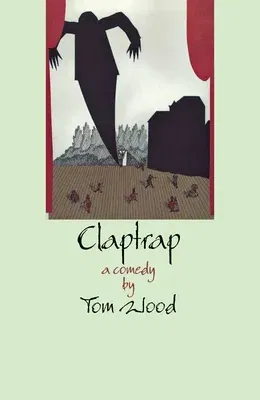Late spring in Oslo, Ontario. The annual Ibsen Festival begins with
auditions, then rehearsals, and, finally, performances.
This year, the Ibfest features productions of five classic plays: The
Twins, a renaissance play in the, er, tradition of Shakespeare; Virtue
Slandered, a restoration comedy in the, um, fashion of Sheridan; The
Raj, a nineteen century look at those quirky, madcap, but well-meaning
Brits in a backward society (it's a musical!); Pantilous in Crete, a
classic Greek tragedy about an Athenian, having offended Zeus, who is
doomed to live a life of horrors; and the Canadian classic, Frozen
Wheat, about a Quebucois couple stranded on the prairies in the dead of
winter, their son growing up Anglais, their daughter pregnant, with
relatives from Newfoundland causing havoc and humorous but touching
situations.
The actors in the company include (among many others) Dirk Hart, the
gorgeous American film star, making an attempt at serious theatre; Simon
Webber-Douglas, Canadian-born but British-trained, which makes him
almost good; and Julia Hudson, talented, Canadian-born and trained, and
the target of the Ibfestos sarcasm, sadism, and cruelty.
Antony Manley-Dunn presides over the Ibfest as one imagines Cecil Rhodes
did the continent of Africa.
Claptrap is a grand satire of the colonial mentality that governs the
theatre festivals of Canada. Anyone who has worked at, performed in,
been to, or even heard about the Stratford or Shaw festivals will laugh
heartily and with recognition.
Although a play, Claptrap reads much like a comic novel; here is Tom
Wood's description of the development of the festival:
Oslo's biggest claim to fame before the Festival was the Hastverk Fish
Pickling Plant (Herring and Smelt). When the town was floundering in the
early 1960s, the city fathers hit upon the idea of having a summer
festival of Norwegian culture. Dancing, food, sports, and the community
players performed A Doll's House at the town hall. The cultural festival
failed miserably, but the play was a modest success. The town fathers
decided to follow in the footsteps of two other theatrical festivals and
gussied up the town to look more period. 1850s Norway, to be exact.
Local businesses slapped on facades and adopted Ibsenesque names: the
hair salon became Hedda Hair; the pub, Gabbler's; the funeral parlor,
Ghosts; the hotel and convention centre, Gynt Pier Inn.

